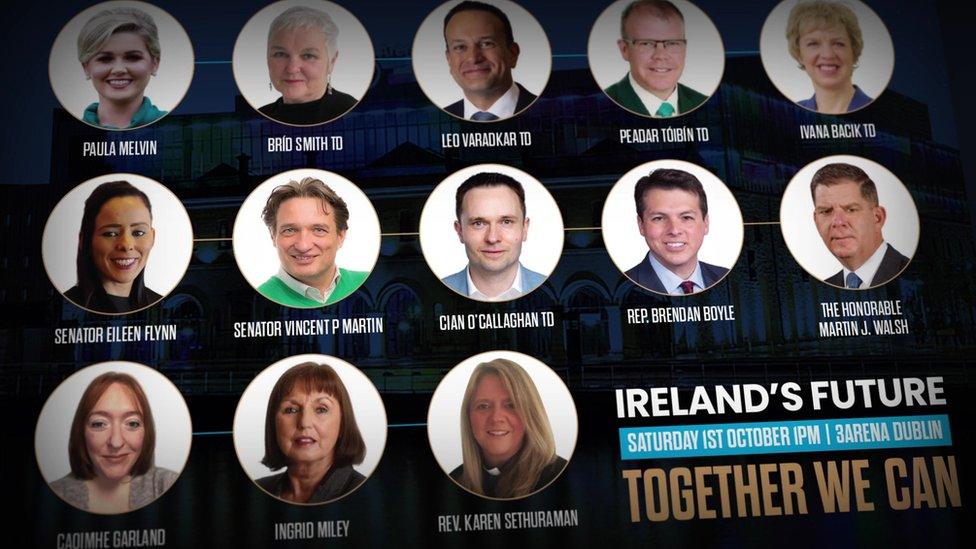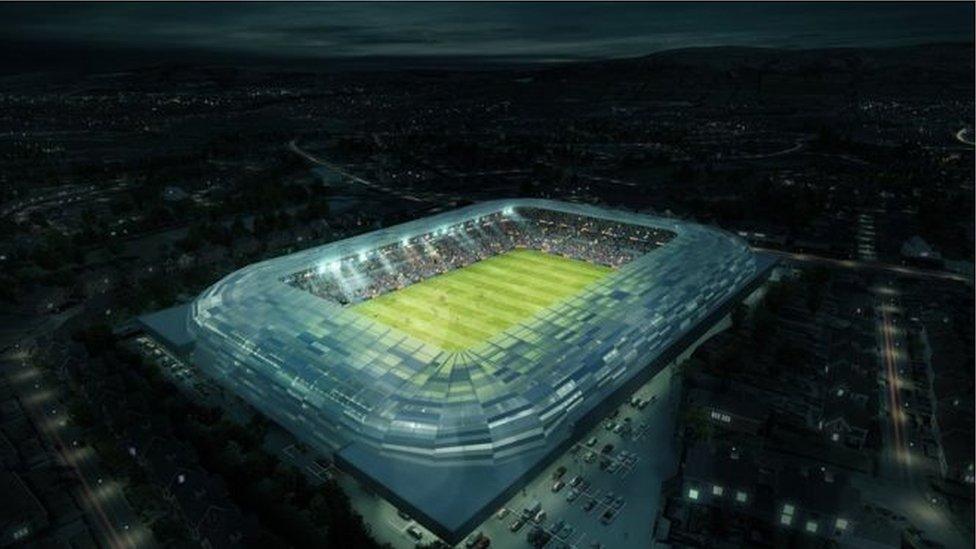Irish government must push harder for United Ireland - Varadkar
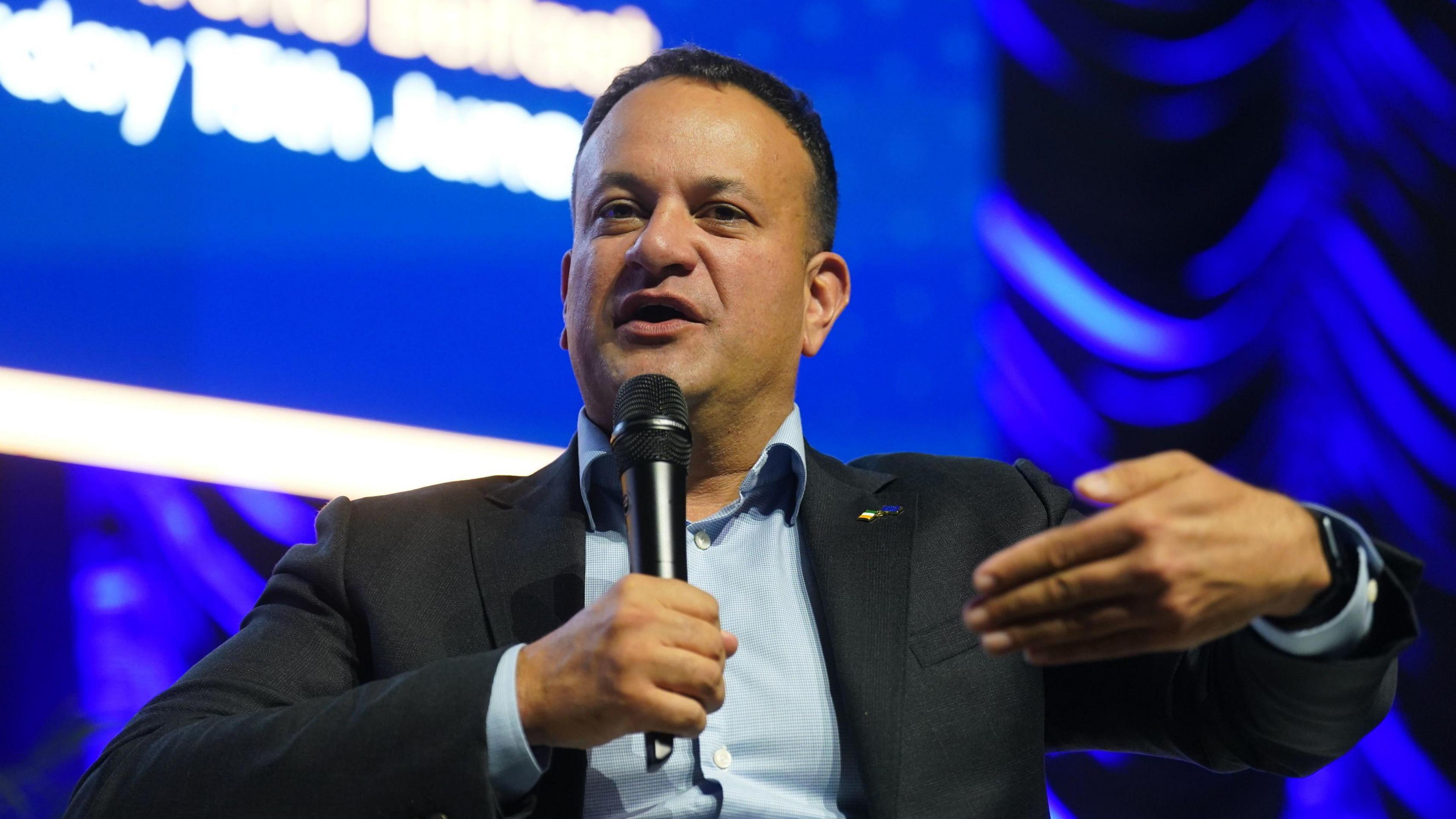
Leo Varadkar said preparations needs to be stepped up for a possible end to the border
- Published
The former Taoiseach (Irish prime minister) Leo Varadkar has said the next Irish government should push harder for a united Ireland.
Speaking at an Ireland’s Future event in Belfast, he said there was a need to step up preparations for a possible end to the border, including setting aside funding to pay for the change.
Mr Varadkar said that rather than just being a “political aspiration”, a united Ireland should become a “political objective”.
Asked if a date of 2030 should be set for a border poll, he said he was reluctant to work to a specific time-frame.
The former Fine Gael leader stepped down as Taoiseach in April.
Mr Varadkar was one of the guest speakers at the event in Belfast, which was attended by more than 2,000 people and discussed a united Ireland.
He outlined his vision for the future and said the campaign for a united Ireland should be wider than any one party.
'Preparing the ground'
“What I hope we’ll see happen in the next government, no matter which parties are in it, that we’ll see what is a long-standing political aspiration towards unification become a political objective,” he said.
”It means actively working towards it, preparing the ground for it.”
Mr Varadkar defended his time in office saying his focus was dealing with the repercussions of Brexit and the collapse of power-sharing at Stormont.
He said financially a united Ireland would be an economic success but the next Irish government should set aide money to prepare for a united Ireland “transition period”.
He said he did not want a united Ireland just for the sake of it, he wanted it to be a success, with the maximum amount of support.
'Apologies are appropriate'
Mr Varadkar also told the audience that apologies may be necessary to Protestants on the island of Ireland, including from the IRA.
He was speaking in answer to a question about whether, as part of a unity process, the IRA should apologise to victims, and the Irish state should say sorry for its past treatment of non-Catholics.
The former taoiseach said: "I think we have to acknowledge that for quite some time the Irish state gave the Catholic Church a special position and therefore treated minorities as if they were in a different position.
"I think we have to acknowledge that.
"In terms of apologies, I think apologies are appropriate, but you have to be careful about them.
"You can only apologise for things that happened, it has to be authentic, you've to mean it."
Mr Varadkar said "you have to know it will be accepted too".
"I often hear people who are republicans, who maybe would have been supporters or involved in the IRA in the past, when they give apologies, it is kind of a general language, ‘apologies for what happened and everyone suffered and what everyone did’.
"I think if we are going to start to change minds and hearts among Protestant people, a much more stronger, specific apology for ‘what was done and what we did’, I think would help to change some hearts and minds."
'Sneering and denigrating abuse'
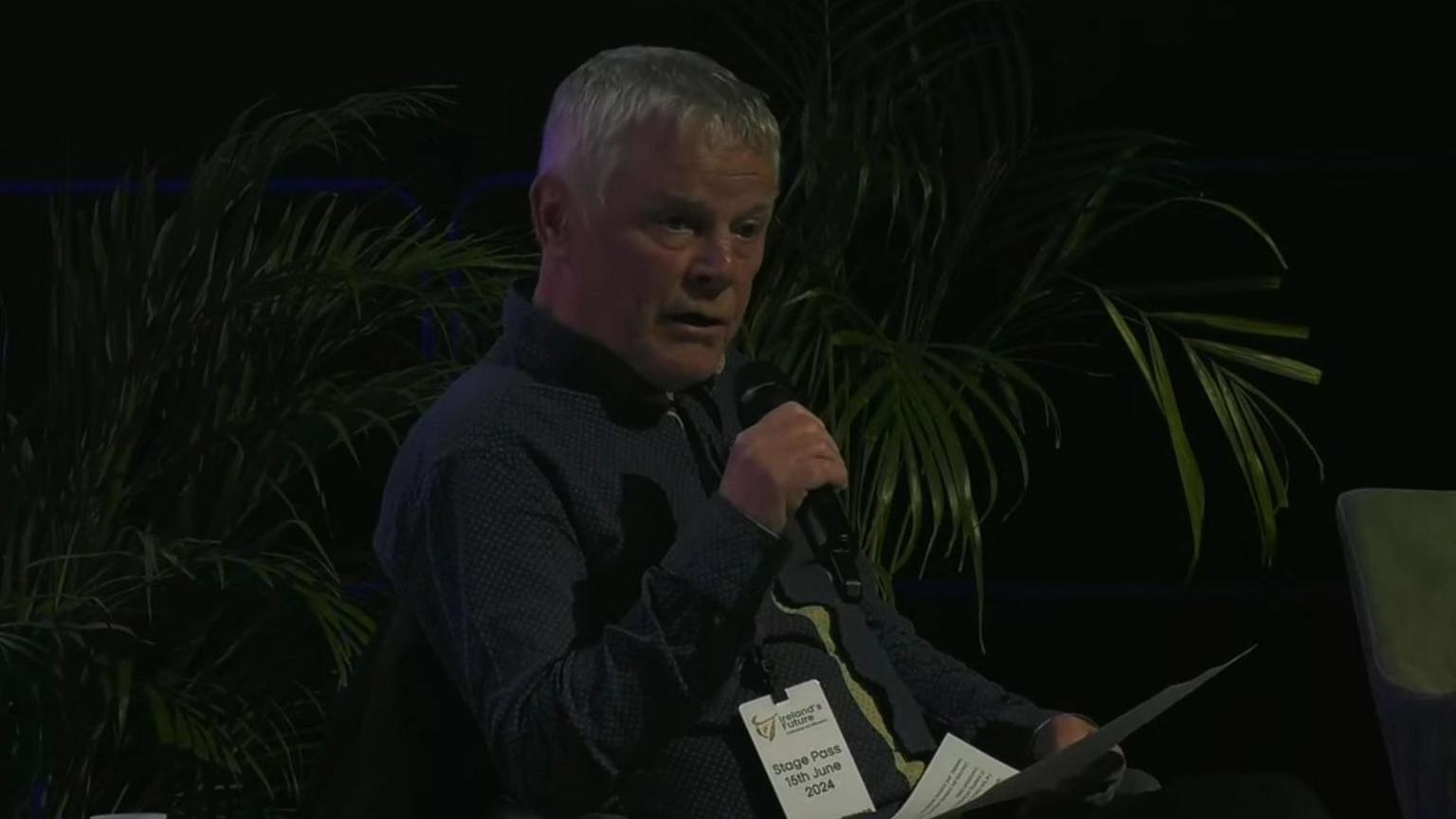
David Adams is a former paramilitary and loyalist politician
In a section entitled ‘Protestant Perspectives’, the discussion also included former paramilitary and loyalist politician David Adams and DUP (Democratic Unionist Party) founder Wallace Thompson.
Mr Adams has been critical of the Ireland’s Future group in the past and voiced his concerns again.
He claimed that members of the group were ignoring, and in some cases, opposing the need for reconciliation between divided communities.
Mr Adams described his remarks as a “wet blanket” at the event, but he appreciated the invitation.
He said there had been a “sustained campaigning of sneering and denigrating abuse” aimed at unionists on social media and mainstream media.
Looking to the future, he said: “Either we all win or we all lose, it’s that simple.”
On a united Ireland, he said if he lived to see a border poll he would make a decision based on the situation at the time, and would choose the option that would secure the best future for his children and grandchildren.
Ireland’s Future have defended their work.
On their website, they say they are dedicated to “mutual respect between all views and traditions that share this island”.
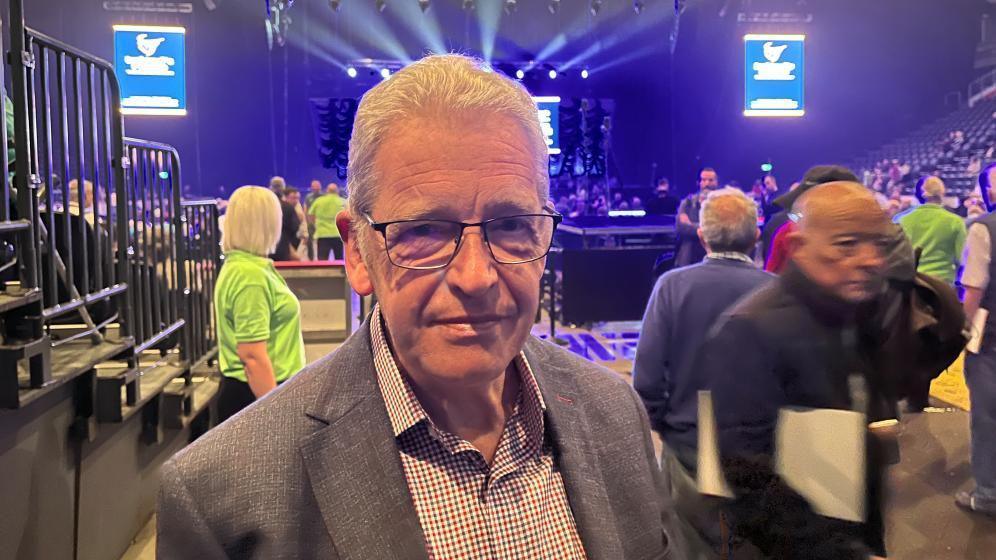
Wallace Thompson is founder of the DUP
'Out of my comfort zone'
DUP (Democratic Unionist Party) founder Wallace Thompson also spoke at the event.
Last month, he said he felt a united Ireland was inevitable.
At the event, he described himself as a life-long supporter of the Reverend Ian Paisley, as well as a unionist and evangelical Protestant.
He received a round of applause after admitting he was “out of my comfort zone”.
Nonetheless, he insisted his conscience was clear for attending an event linked to a united Ireland.
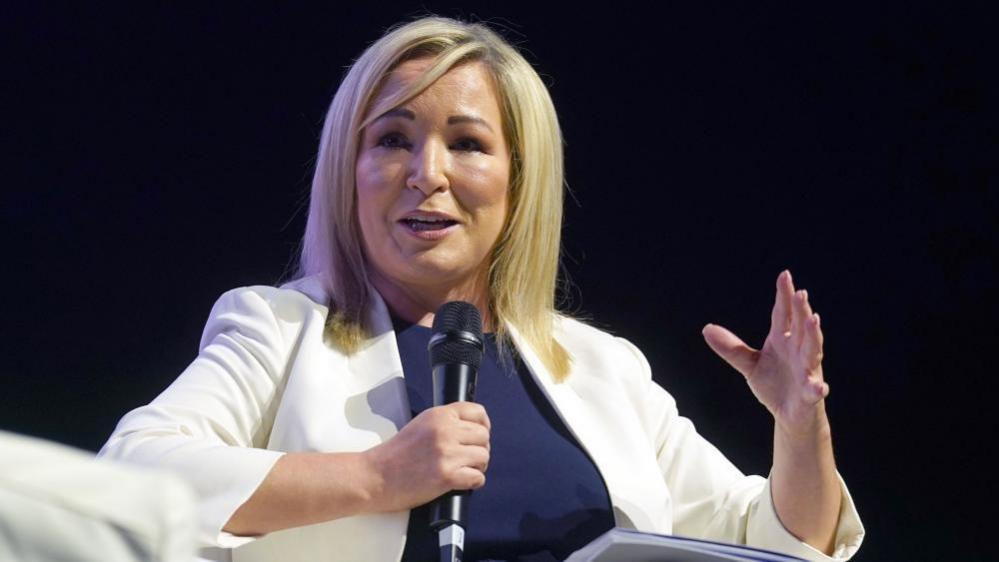
Michelle O'Neill also addressed the audience at Ireland's Future event in Belfast
First Minister Michelle O’Neill also spoke at the event.
She insisted that Casement Park would be rebuilt while she is in office.
The Sinn Féin vice-president said her preference was that it would be ready in time for Euro 2028 but she made it clear that even if it was not completed by then, it would still happen.
“In case there’s any doubt out there, Casement will be built on my watch,” she said.
Northern Ireland is due to host five games in the championships but the stadium site remains derelict and redevelopment work has yet to begin.
Supporters of the project hope the next UK government, after the 4 July election, might provide the necessary funding.
'Diary clash'
Politicians from both sides of the border spoke at the event including Sinn Féin president Mary Lou McDonald, the SDLP’s Claire Hanna and Fianna Fáil TD Jim O’Callaghan plus representatives from the Alliance Party, Green Party, Workers Party, Fine Gael, People Before Profit, Aontú, the Social Democrats and the Irish Labour Party.
The Alliance Party leader, Naomi Long, was due to speak but withdrew because of a “diary clash”.
One of the slogans of Ireland’s Future is “paving the way to the reunification of the island”.
On its website it states it is “not a political party and are not affiliated to any political party”.
Related topics
- Published13 June 2024
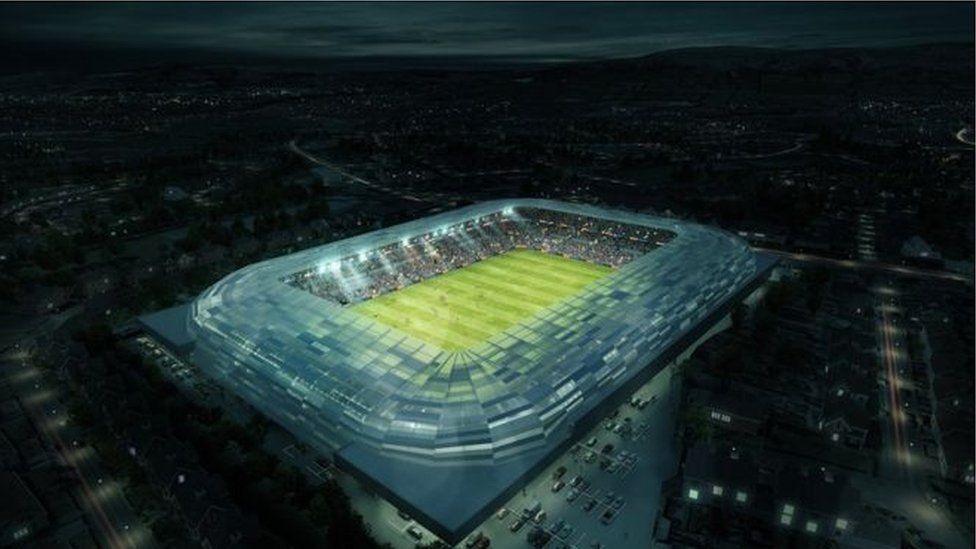
- Published1 October 2022
